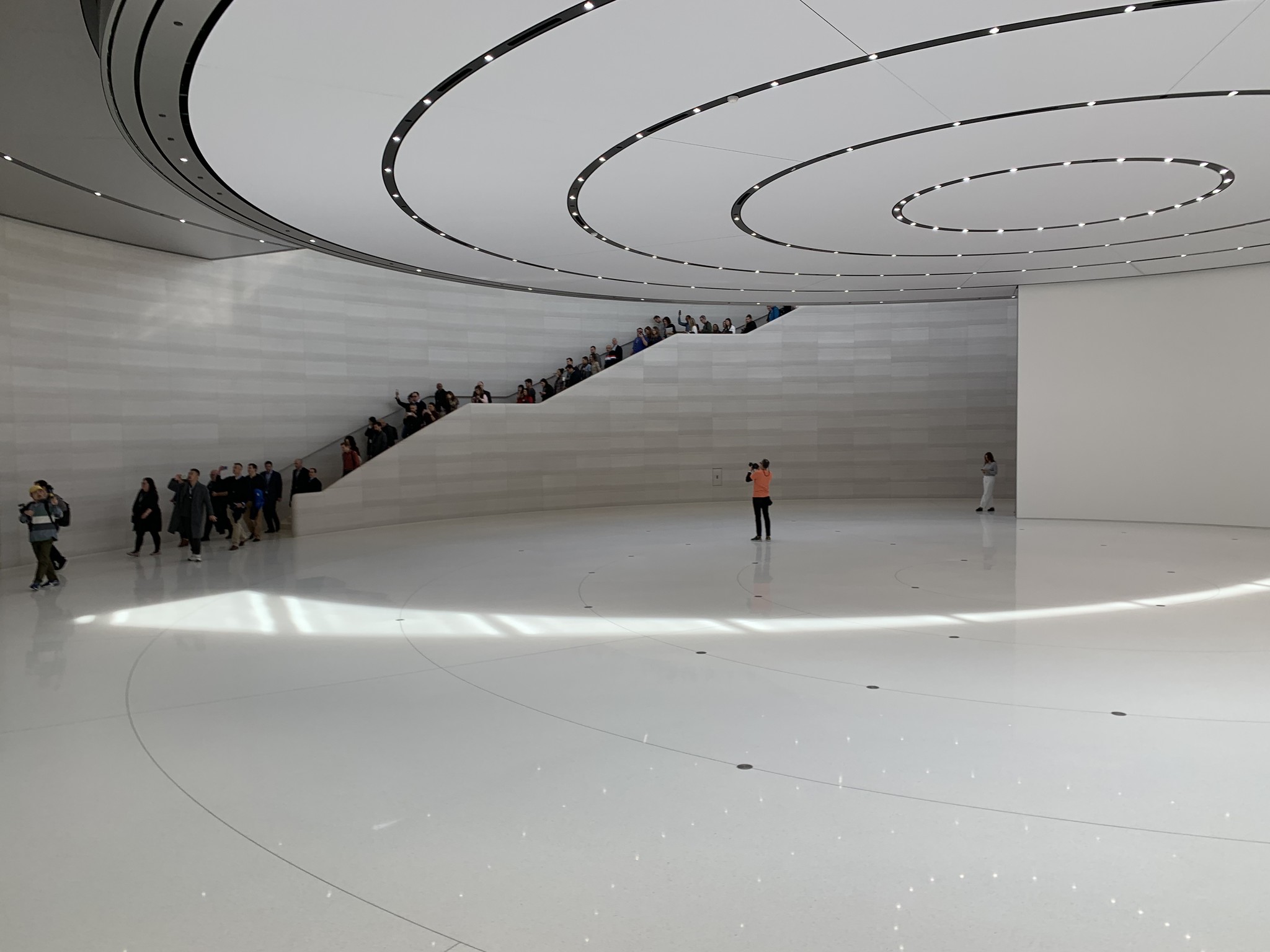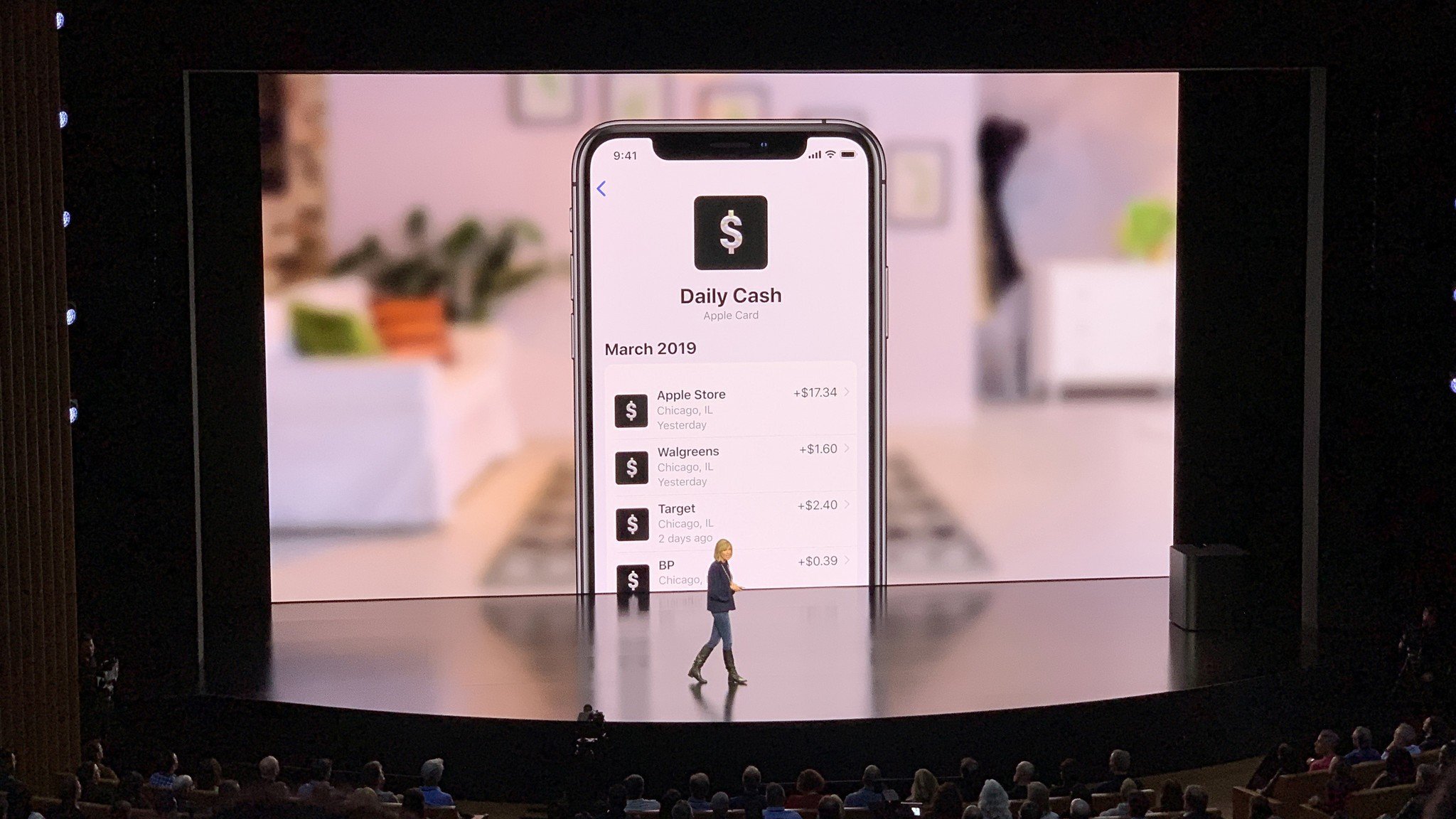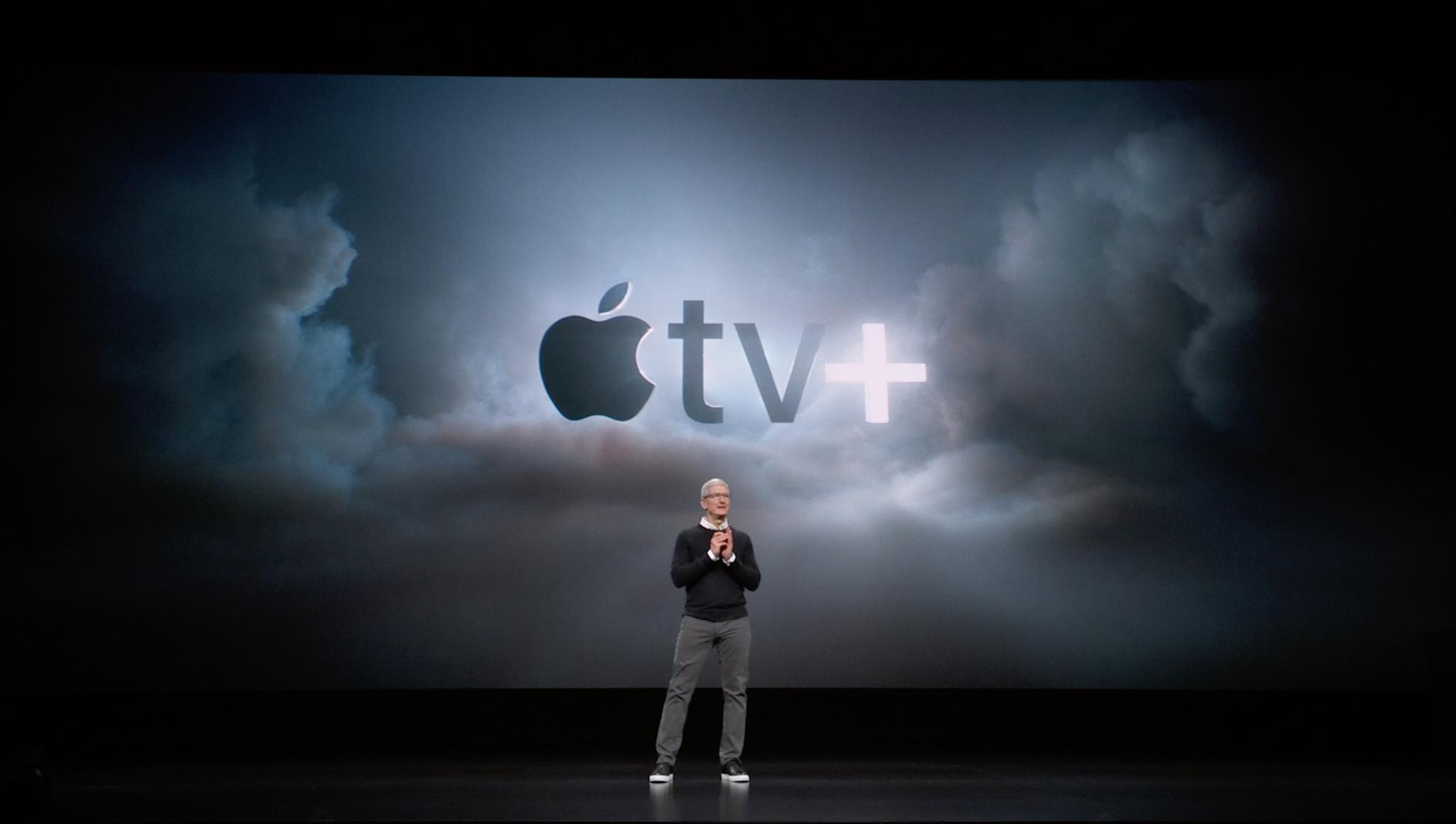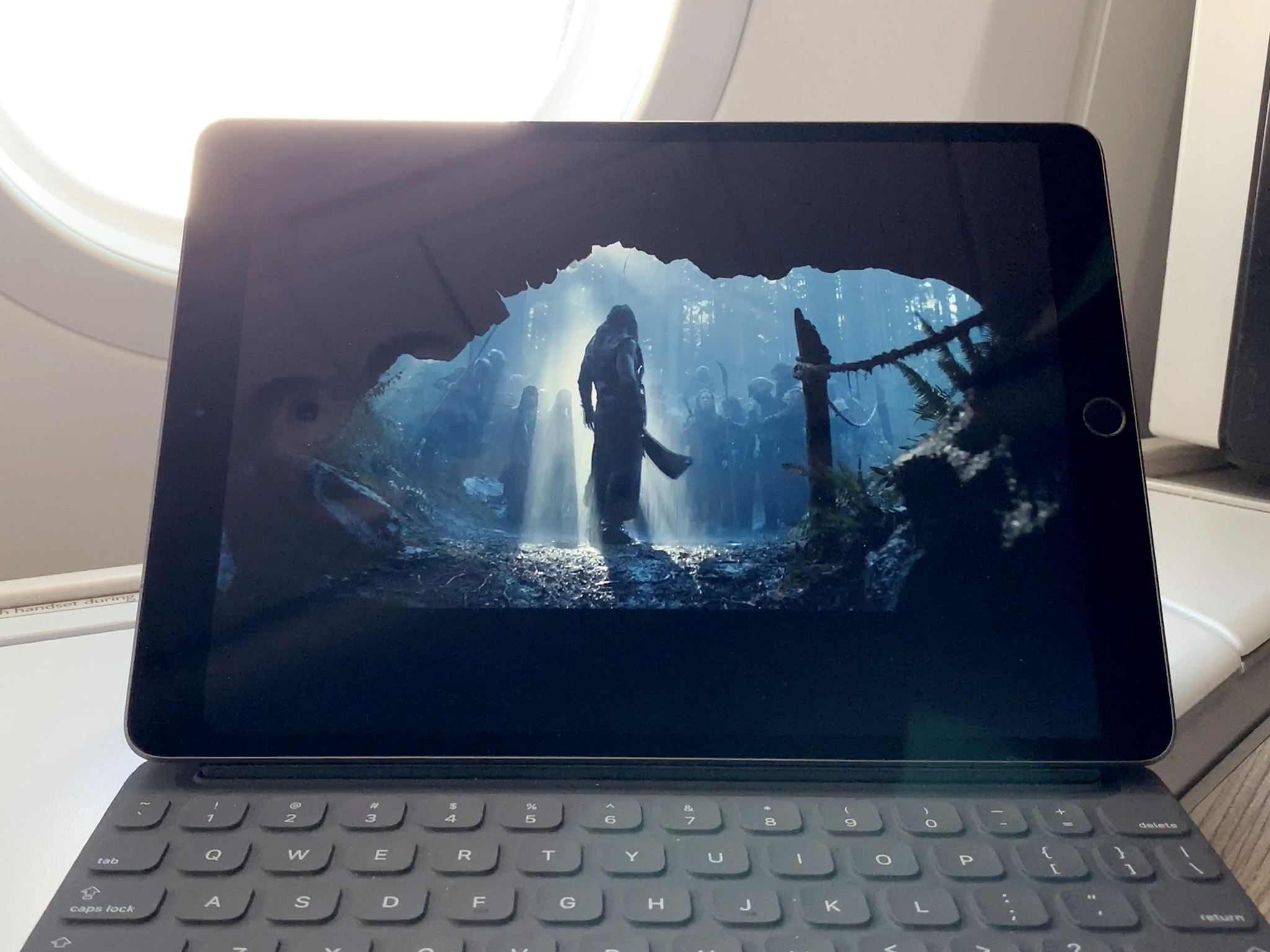Three Things About Apple's New Services That Matter for Accessibility

At first blush, Apple's star-studded media event seemingly had little to do with accessibility. Apple Card, Apple News Plus, and Apple TV Plus, and Apple Arcade all are services, which unlike new iPhones or new operating systems, aren't as easy to pick apart from a disability point of view. Apple is getting into the credit card business, after all.
As I watched Apple's presentation from the audience in the Steve Jobs Theater, however, the proverbial lightbulbs kept going on in my head. (Which amused me if only because of how fitting it seemed to have metaphorical lights going off in my mind while covering an event stuffed to the brim with Hollywood A-listers.) It occurred to me several of Apple's announcements were, in fact, applicable to accessibility.
Making the Credit Card Experience Accessible

Apple's marketing copy for Apple Card touts it as "a new kind of credit card," which is partly true. At its core, it's a pretty standard card. What differentiates it is the hooks it has into the iOS Wallet app and, of course, integration with Apple Pay.
The "special sauce" Apple is slathering onto Apple Card is noteworthy from an accessibility perspective as well. Take the application process, for instance. The company boasted during the Apple Card segment of the event that anyone with an iPhone can apply for the card, directly from their device. This is a radical departure from typical credit card applications, which involve a web browser and a litany of finely-printed legalese.
As I tweeted during the keynote, the fact Apple designed Apple Card in such a way that applying for it involves only your iPhone is ingenious from an accessibility angle. Because of this, applications will (presumably) integrate with iOS accessibility stalwarts such as VoiceOver and Dynamic Type, for example. Using their platform's leverage is smart on Apple's part because it instantly makes a relatively inaccessible endeavor (applying for credit online) into a coherent, accessible experience. I hesitate to associate credit cards with sparking joy, but being able to use VoiceOver to get Apple Card is pretty darn close. It's one less barrier to entry.
Likewise, the notion of Apple tracking one's spending and whatnot within the Wallet app transforms more than just your run-of-the-mill monthly statements. As with the initial application, the accessible side to seeing merchants and your spending is that, again, Apple can leverage iOS's accessibility features to enhance the experience for disabled people. Rather than speak to a customer service rep on the phone or cringe at a screen reader's inability to decipher cryptic merchant listings, Apple can use VoiceOver (and other technologies) to make managing Apple Card a more seamless, frustration-free experience for the blind and visually impaired.
The Redesigned Apple TV App

Based on what I can grok from screenshots — I'm not testing the iOS 12.3 beta — the redesigned TV app is interesting for the way Apple has changed the buttons for Up Next, et al, to actually look like real buttons. Why this is exciting is not for anything the TV app does functionally, but because of what it potentially foreshadows.
Bloomberg's Mark Gurman has reported some bits of information regarding what Apple has planned for iOS 13, which, according to him, goes by the codename "Yukon" internally. Among a rumored iPad home screen redesign and other features, I hope a user interface facelift is also in the works. Not to the degree iOS 7 was, but I can't help but wonder if the TV app's button-like navigation elements aren't a sign of Apple eating its own dog food regarding testing a new look. (The same applies to the Apple Pencil 2's pairing/charging status animation on iPad Pro.) Hopefully, these "teasers" are harbingers of things to come at WWDC in June.
I'm on the record as saying I believe Apple threw the baby out with the bathwater in terms of iOS 7 button design. They've course-corrected a good bit since 2013, but I continually long for the days of more concrete, iOS 6-style button designs. The current "button shapes" option is mediocre at best; real buttons are best for visual and cognitive reasons. And I hope the new TV app is another sign that change is in the air in terms of UI design.
On 'See'

One of Apple's original series is See, starring Alfre Woodward and Jason Momoa, about a post-apocalyptic world where everyone is blind. In the show, humans have been without sight for so long—hundreds of years—that people ever having vision is hotly debated because no one can believe the ability to see even existed.
Of all the shows teased at the event, See is the one that resonated with me the most. Of course, Apple TV Plus isn't launching until the fall, so it's impossible to critique a television show I've never seen. Still, as a legally blind person, I can speak to the show's basic premise, which is fascinating (and somewhat revelatory) for Hollywood.
It strikes me that the show comes to the viewer with a great deal of empathy. That is to say, the ability to see isn't taken for granted. Blindness is the norm here, and it's refreshing for Hollywood to take such a disability-first stance on something, even in a sci-fi realm. Without regards to writing, See will, at the very least, aim to expose audiences to the sort of things blind people do every day. How they live life and how they experience the world. Vision is practically a figment of people's imagination! It's important not to gloss over this fact—the show's producers are putting disability (and, by extension, accessibility) as a fact of life, not as some pity-party consequence of some unfortunate accident.
Whether the show, as art, is entertaining remains to be seen. But as a lifelong disabled person, it's exciting to see Hollywood (and Apple) tackle this as matter-of-fact, instead of the typical moribund and patronizing approaches to disability.
Master your iPhone in minutes
iMore offers spot-on advice and guidance from our team of experts, with decades of Apple device experience to lean on. Learn more with iMore!
Steven is a freelance tech writer who specializes in iOS Accessibility. He also writes at Steven's Blog and co-hosts the @accessibleshow podcast. Lover of sports.

